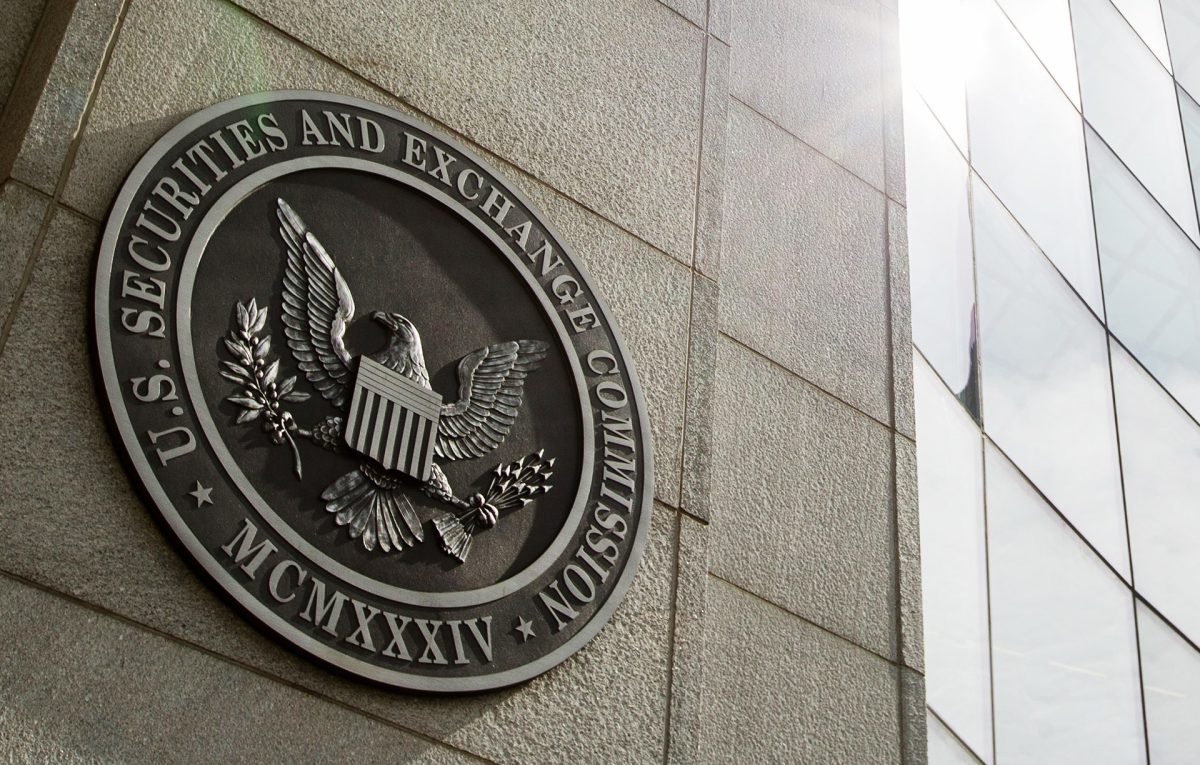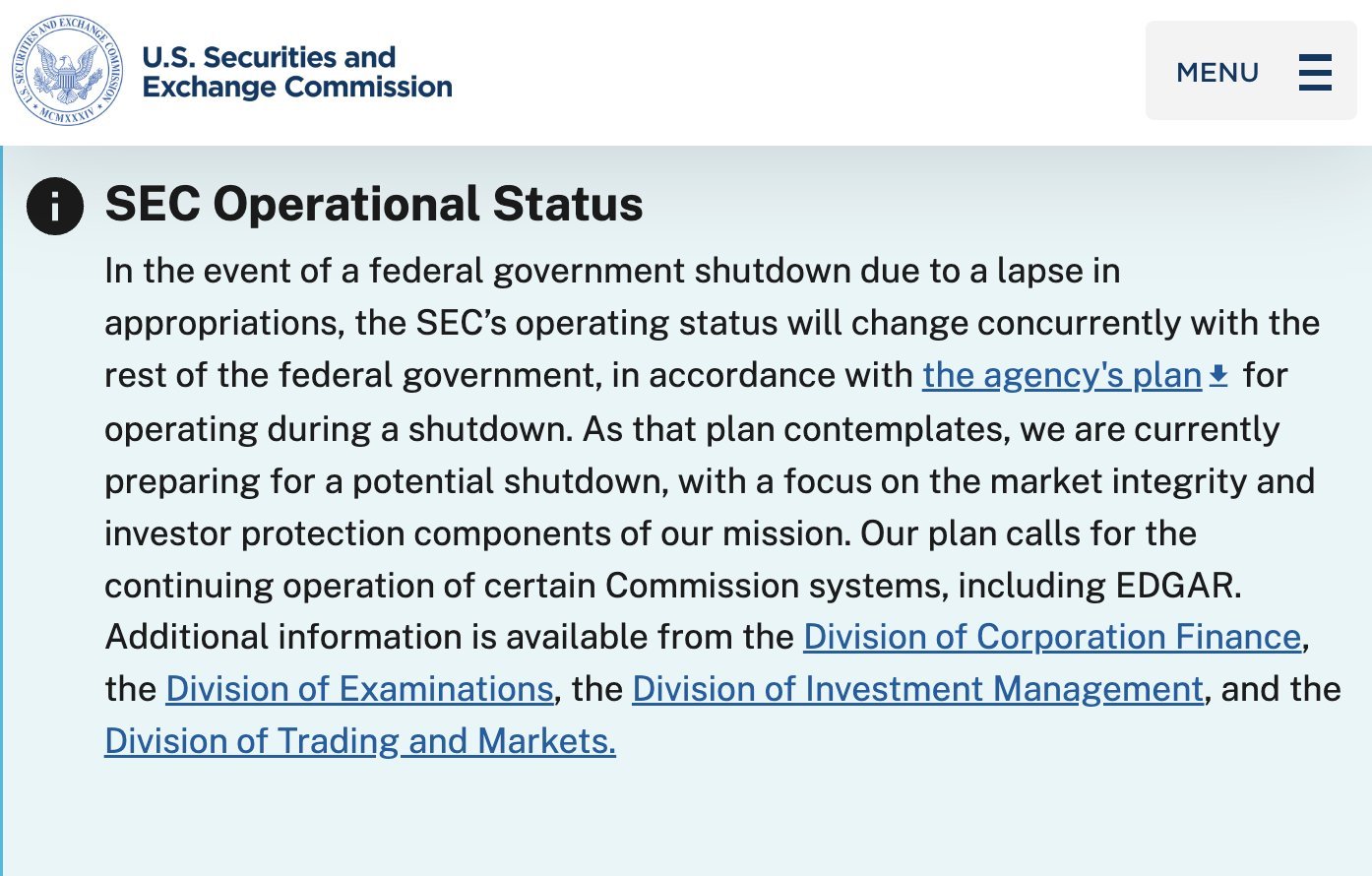SEC Prepares for Potential Shutdown Amid Federal Government Crisis
19.12.2024 16:06 1 min. read Alexander Stefanov
The U.S. Securities and Exchange Commission (SEC) is bracing for the possibility of a shutdown as the federal government faces funding challenges.
According to a recent update on the SEC’s website, the agency’s operational status could soon be impacted by a “lapse in appropriations,” signaling potential disruptions to its usual activities.
As part of its contingency plan, the SEC announced that it would alter its operations in sync with the rest of the federal government should a shutdown occur.
The regulator emphasized that, in such an event, it will prioritize maintaining key functions related to market integrity and investor protection.
The agency reassured the public that critical systems, such as EDGAR (the SEC’s electronic filing system), will remain operational to ensure continued transparency in the financial markets.
While the SEC’s full range of operations may be impacted, the agency has made it clear that it will focus on safeguarding the core elements of its mission, which include overseeing market activities and protecting investors during times of uncertainty.
The situation underscores the broader implications of a potential government shutdown on financial oversight and regulation.
-
1
Market Odds of a U.S. Recession in 2025 Drop in Half Since May
05.07.2025 18:30 2 min. read -
2
What Brian Armstrong’s New Stats Reveal About Institutional Crypto Growth
29.06.2025 15:00 2 min. read -
3
Vitalik Buterin Warns Digital ID Projects Could End Pseudonymity
29.06.2025 9:00 2 min. read -
4
Donald Trump Signs “One Big Beautiful Bill”: How It Can Reshape the Crypto Market
05.07.2025 9:56 2 min. read -
5
Toncoin Launches UAE Golden Visa Program Through $100,000 Staking Offer
06.07.2025 12:04 2 min. read
BitGo Files Confidentially for IPO With SEC
BitGo Holdings, Inc. has taken a key step toward becoming a publicly traded company by confidentially submitting a draft registration statement on Form S-1 to the U.S. Securities and Exchange Commission (SEC).
Crypto Greed Index Stays Elevated for 9 Days — What it Signals Next?
The crypto market continues to flash bullish signals, with the CMC Fear & Greed Index holding at 67 despite a minor pullback from yesterday.
U.S. Public Pension Giant Boosts Palantir and Strategy Holdings in Q2
According to a report by Barron’s, the Ohio Public Employees Retirement System (OPERS) made notable adjustments to its portfolio in Q2 2025, significantly increasing exposure to Palantir and Strategy while cutting back on Lyft.
Key Crypto Events to Watch in the Next Months
As crypto markets gain momentum heading into the second half of 2025, a series of pivotal regulatory and macroeconomic events are poised to shape sentiment, liquidity, and price action across the space.
-
1
Market Odds of a U.S. Recession in 2025 Drop in Half Since May
05.07.2025 18:30 2 min. read -
2
What Brian Armstrong’s New Stats Reveal About Institutional Crypto Growth
29.06.2025 15:00 2 min. read -
3
Vitalik Buterin Warns Digital ID Projects Could End Pseudonymity
29.06.2025 9:00 2 min. read -
4
Donald Trump Signs “One Big Beautiful Bill”: How It Can Reshape the Crypto Market
05.07.2025 9:56 2 min. read -
5
Toncoin Launches UAE Golden Visa Program Through $100,000 Staking Offer
06.07.2025 12:04 2 min. read



